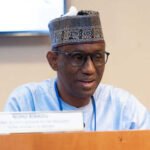The adoption of the African Disability Protocol (ADP) by 15 member states of the African Union is a significant win for the approximately 80 million persons with disabilities across Africa.
Development Diaries reports that the African Commission on Human and Peoples’ Rights (ACHPR) announced in June 2024 that the ADP had officially come into force.
To come into force across the continent, 15 countries needed to fully ratify and deposit their ratification instruments for the ADP.
The Republic of Congo became the 15th country to fully ratify and deposit in May 2023, joining Angola, Burundi, Cameroon, Kenya, Mali, Mozambique, Namibia, Niger, Rwanda, Sahrawi Arab Democratic Republic, South Africa, Uganda, Malawi and Nigeria to ensure the ADP become binding on all African Union members.
This treaty, a result of years of advocacy and relentless campaigning by disability rights organisations, led by Sightsavers’ Equal World campaign, in partnership with local organisations of persons with disabilities, establishes a comprehensive framework to protect and promote the rights of people with disabilities in Africa.
‘We applaud the governments which have adopted the ADP as they truly recognise the rights of people living with disabilities’, Senior Advocacy Lead at Sightsavers, Grace Antwi-Atsu, said.
This is a welcome development because the protocol is the first pan-African human rights treaty that specifically addresses forms of discrimination affecting people with disabilities, such as harmful practices, beliefs, and superstitions.
It is expected to drive significant changes in legislation, policy, and societal attitudes, ensuring that persons with disabilities have equal access to education, employment, healthcare, and other essential services.
For persons with disabilities in Africa, this development heralds a new era of recognition and empowerment.
In the wake of this landmark adoption, governments of African countries must take decisive and sustained actions to translate the treaty’s provisions into tangible improvements.
This involves enacting and enforcing national legislation that aligns with the treaty’s standards, investing in accessible infrastructure, and promoting inclusive education and employment opportunities.
Governments should also engage in continuous dialogue with disability rights groups to ensure that policies reflect the lived experiences of persons with disabilities.
Development Diaries calls on governments across the continent to create and enact disability specific laws and policies in line with the treaty.
We also call on citizens of African countries to use the treaty as a legal weapon to hold their governments to account.
Photo source: United Nations








